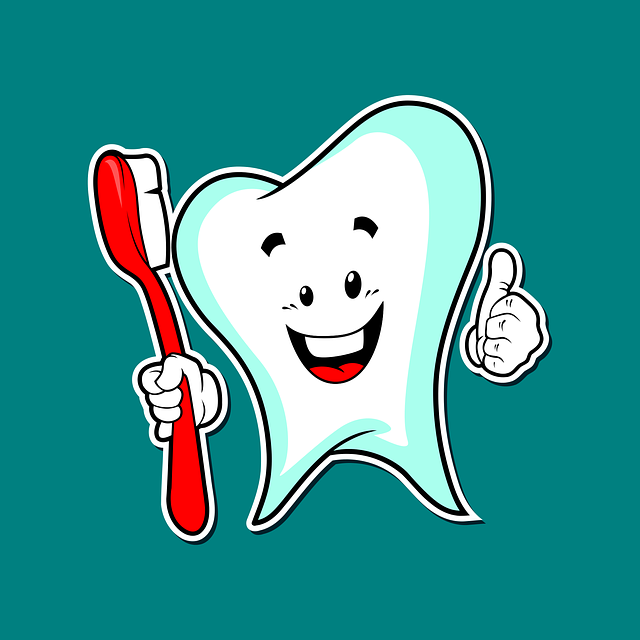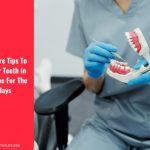
Image Credit: Pixabay
Ever since we were kids, we have already been taught by our parents to take care of our teeth by brushing daily, flossing, not eating too many sweets, visiting the dentist, and so on. At that early age, we try our very best to follow these maybe because there’s a reward or either a punishment; but regardless of what our parents’ methods are in teaching proper dental care, we sure do know one thing: if we don’t take care of our teeth and gums, it’ll cause cavities, tooth decay, gum problems, toothaches, and more trips to the dentist and or Orthodontist.
Now as grown-ups, taking care of your teeth and gums can be a totally different scenario. Since it’s already considered a voluntary decision before it can become a habit, there are several motivations people have for conducting proper dental care (besides just being used to it). It can be as simple as you don’t want to have bad breath, or it can also be as serious as it is an asset in your profession. But sadly, amongst all the common reasons, it is simply unlikely for us to take care of our teeth and gums because we want to be completely healthy and free from disease.
Yes. Many of us do not realize that dental care goes beyond cavities and gingivitis. It can actually affect our overall health. In this article, we want to share with you the synergic relationship between oral health and total wellness.
What is the connection?
We all know that the mouth is the gate or entryway for food, liquid, and other stuff that we need to put inside our body. But aside from that, it also gives access to disease-causing bacteria and germs, right? Thus, to put it simply, poor oral care eventually leads to sickness because of all the bacteria you failed to destroy inside your mouth.
To dig a little deeper, here’s another way to explain the connection between the two. Just like other parts of our body, our mouth has its own good and bad bacteria. Now regardless if you have a strong immune system or not, once you get used to skipping proper dental care, you are basically cutting short the lives of the good bacteria in your mouth. So, as the harmful bacteria continue to win over, they’ll increase rapidly and in turn cause oral problems at the early stages.
And as we understand that in our health, it’s always a case of ‘one thing after another’, your dental and oral problems like cavities, decay, and gum issues will eventually lead to various diseases. Now for you to understand exactly what we mean, we’ll give you examples of diseases that are connected to dental care…
Examples:
- Cardiovascular Diseases
In case you have periodontal disease or gum inflammation, the bacteria in your mouth can enter your bloodstream and then travel to your heart, causing serious diseases. Some of which are atherosclerosis and endocarditis.
- Dementia
The bacteria from gingivitis may enter the brain through either nerve channels in the head or through the bloodstream, that might even lead to the development of Alzheimer’s disease.
- Diabetic Complications
People suffering from diabetes are more likely to suffer from teeth and gum problems. And as a matter of fact, it can also be vice versa. Inflammation of the gum tissue and periodontal disease can make it harder to control your blood sugar and make your diabetes symptoms worse
- Respiratory Problems
Bacteria from the infected teeth and swollen gums can either be breathed down to affect the lungs and other parts or can take the bloodstream path to do the same. Once in the respiratory system, the infected bacteria can cause several problems like pneumonia and acute bronchitis.
Add to the list other health issues like kidney dysfunction, pregnancy complications, erectile dysfunction, cancer, and rheumatoid arthritis. These are just some of the problems you may be facing once you fail to acknowledge the importance of proper and religious oral care.
In order to take care of your health, you have to pay attention to your dental care. It’s important to know when to see a dentist and when to see an orthodontist. Orthodontists and dentists both help patients improve their oral health, but in different ways. Dentistry focuses on the teeth, gum, nerves, and jaw. See your Dentist for advice on how you can develop a hygiene that will not only benefit your teeth but your overall health as well, they are experts in advice on protecting your teeth from getting damaged and guiding the right set of dental hygiene kits. Orthodontists do another three years of specialty training to correct bites, occlusions and straighten your teeth. If you want to get your teeth straightened or simply know the pros and cons of Invisalign vs braces, then talk to your orthodontist.
About The Author:
Dominic Byrne is the marketing manager for Fine Orthodontics, a Sydney-based clinic that offers Orthodontic treatments for patients wanting to feel good about their smile.




